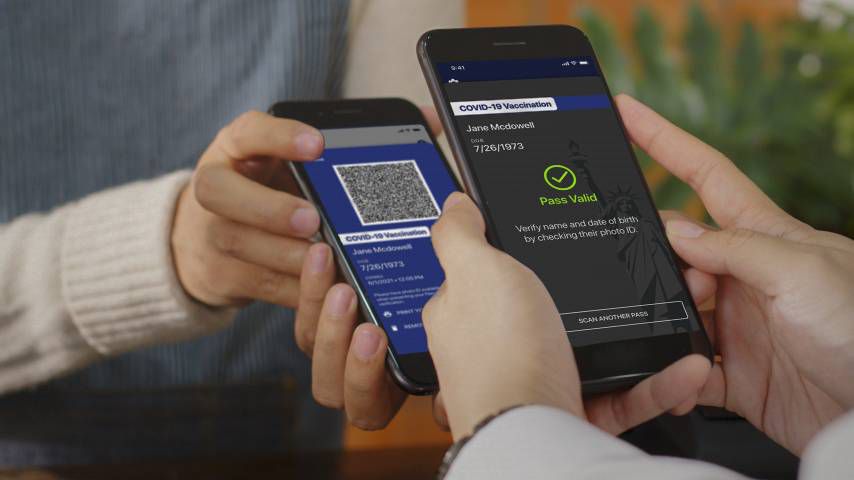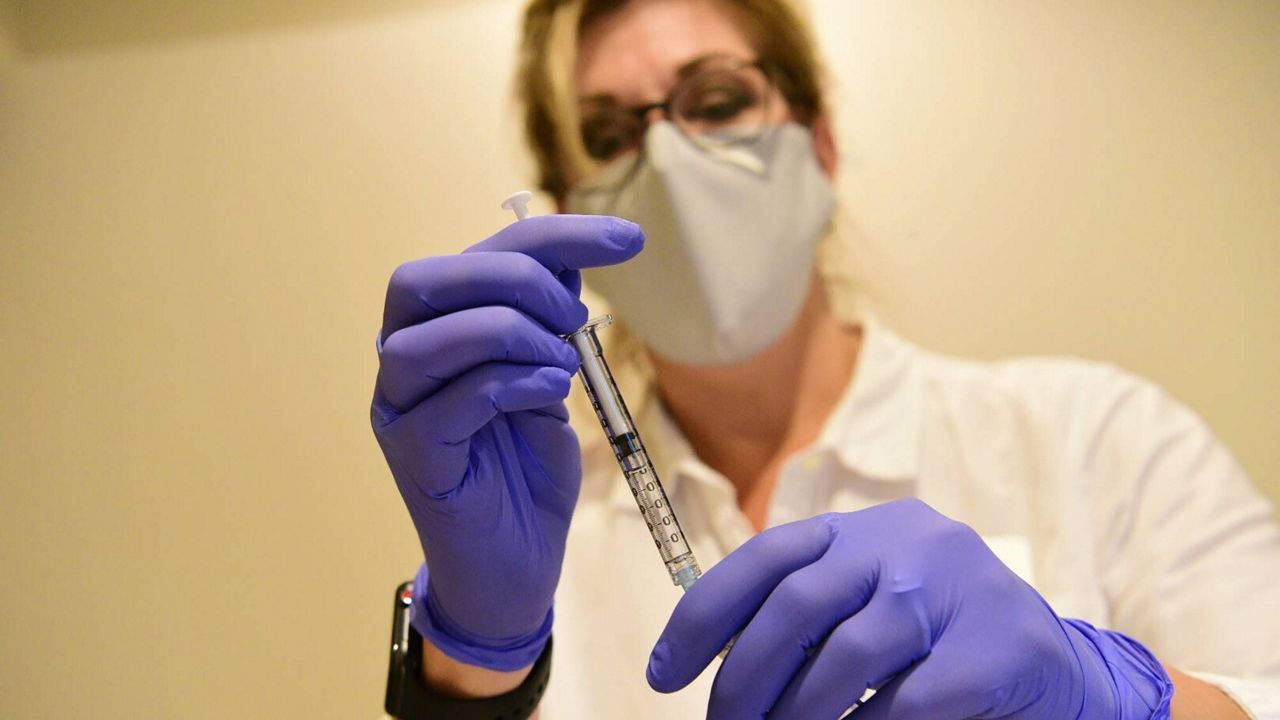Vaccine passports — proof, likely digital, of COVID-19 inoculations to travel or enter businesses or events — are quickly replacing mask mandates and lockdowns as the COVID-19 pandemic’s hot-button, politicized debate.
What You Need To Know
- Vaccine passports are quickly replacing mask mandates and lockdowns as the COVID-19 pandemic’s hot-button, politicized debate
- Proponents say vaccine passports would allow for a speedier return to normalcy because people will feel safer in public settings knowing they are less likely to be exposed to COVID-19
- But the pushback has been swift and loud, especially from Republican voices, who argue that passports would infringe upon Americans’ civil liberties and privacy
- The Biden administration says it won’t be involved in developing vaccine passports, mandating them or creating a federal database of Americans’ vaccination statuses
The concept is being considered by businesses, schools and politicians across the country. New York state last month launched a digital vaccine passport, an app called the “Excelsior Pass,” that allows residents to prove their vaccination status to businesses or venues that require it — Madison Square Garden, which mandates proof of vaccination or a negative COVID-19 test, is among those already using it. Hawaii Gov. David Ige said earlier this week his state is testing similar technology.
Some universities and cruise lines are already requiring proof of vaccinations, and at least 17 companies or nonprofits are developing websites or apps that could be used at sports venues, restaurants and other businesses, Joel White, executive director of the Health Innovation Alliance, told The New York Times.
“I do believe that there will be individual entities that will do that,” Dr. Anthony Fauci, the federal government’s top infectious disease expert, told the “Politico Dispatch” podcast this week. “There may be theaters that say, ‘You don't get in unless you have proof of vaccination.’ There may be colleges or other educational institutions that do that. I'm not saying they should or that they would, but I'm saying you could foresee how an independent entity might say, ‘Well, we can't be dealing with you unless we know you're vaccinated.’”
Proponents say vaccine passports would allow for a speedier return to normalcy because people will feel safer in public settings knowing they are less likely to be exposed to the virus.
But the pushback has been swift and loud, especially from Republican voices. They argue that passports would infringe upon Americans’ civil liberties and privacy.
Texas Gov. Greg Abbott signed an executive order Tuesday prohibiting state agencies or organizations that receive state taxpayer money to require vaccine passports.
“These vaccines are always voluntary and never forced," Abbott said. "Government should not require any Texan to show proof of vaccination and reveal private health information just to go about their daily lives.”
Last week, Florida Gov. Ron DeSantis signed a similar executive order, but took it a step further by barring all businesses in the state from requiring customers to show vaccine documentation. Violators would risk losing state grants or contracts.
“It’s completely unacceptable for either the government or the private sector to impose upon you the requirement that you show proof of vaccine to just simply be able to participate in normal society,” he said.
The Republican governors of Georgia, Tennessee, Missouri, and Nebraska have also voiced opposition to vaccine passports.
The Biden administration says it won’t be involved in developing vaccine passports, mandating them or creating a federal database of Americans’ vaccination statuses.
“The government is not now nor will we be supporting a system that requires Americans to carry a credential,” White House press secretary Jen Psaki said Tuesday.
The federal government, however, will soon provide guidance to the private sector regarding vaccine passports “that provides important answers to questions that Americans have, in particular around concerns about privacy, security or discrimination,” Psaki said.
“As these tools are being considered by the private and nonprofit sectors, our interest is very simple from the federal government, which is Americans’ rights and privacy should be protected so that these systems are not used against people unfairly,” she said.
The World Health Organization said Tuesday it is not on board with requiring proof of vaccination, as it expressed concerns about whether inoculation prevents COVID-19 transmission and equity.
“We as WHO are saying at this stage we would not like to see the vaccination passport as a requirement for entry or exit because we are not certain at this stage that the vaccine prevents transmission,” WHO spokeswoman Margaret Harris said to Reuters.
The American Civil Liberties Union has its reservations, too. Policy analyst Jay Stanley recently wrote that the civil rights group opposes digital passports because there would be inequality — because not everyone owns smartphones — and privacy concerns.
He also wrote that if enough Americans are vaccinated and herd immunity is achieved, the point would be moot.
“When that happens and COVID comes to resemble other dangerous diseases where there are occasional flareups but little spread, such as measles, the need for a COVID passport will seem much less urgent,” Stanley wrote. “Nobody is demanding we provide proof of measles vaccination everywhere we go.”
If required, vaccine passports could face legal challenges. Experts also say they are ethical questions. Wake Forest Professor Mark Hall and Stanford Professor David Studdert, both experts in health law, recently wrote in the New England Journal of Medicine that it is morally questionable to deny people access to places or events while vaccine supply is limited and that the vaccination rates of racial minorities and low-income populations are likely to remain disproportionately low.
Nevertheless, some officials maintain that vaccination verification is a necessary step until the virus is under control
According to The New York Times, the chief technology officer of the Department of Health and Human Services held a conference call last week with state and local health officials, who are perplexed by the Biden administration’s resistance toward the passports.
“It’s going to be necessary to have this, and there is going to have to be some kind of system where it’s verified,” said Dr. Marcus Plescia, the chief medical officer of the Association of State and Territorial Health Officials, according to the newspaper.
The concept of vaccine verification is not unprecedented. For example, proof of inoculation for other diseases has long been required by school boards, by the Army and for certain travel. In 1885, the United States required travelers entering the country to prove they were vaccinated for smallpox by either presenting a certificate or a mark on their arms from the shot, or had survived the disease by showing facial scars.
Ryan Chatelain - Digital Media Producer
Ryan Chatelain is a national news digital content producer for Spectrum News and is based in New York City. He has previously covered both news and sports for WFAN Sports Radio, CBS New York, Newsday, amNewYork and The Courier in his home state of Louisiana.





